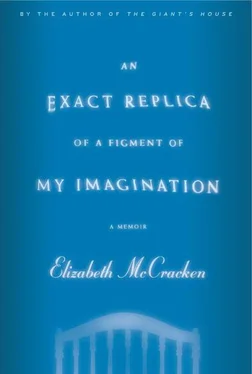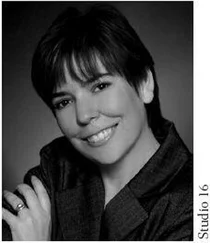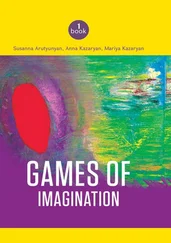The sky was peach and gold, a teacup of a morning, just enough clouds so as not to mock us. Why isn’t there a dawnish equivalent for the word dusky ? That’s what the light was, beautiful and dawnish. We found a spit created by the receding tide. A spit curl, really: it spiraled around. We walked to the end of it. Edward had already removed the screw that kept the wooden urn shut. He took off the lid. The ashes were in a small white container like a film canister. We opened it up, and then we cast the ashes upon the water, hoping they would. . what? He wouldn’t return to us, but we hoped someone would. It was tremendously comforting. Fingertip after fingertip, we let him fly.
It probably sounds ridiculous to observe that I was at that moment already a day or two pregnant, as nearly as I can reckon it. If this morning appeared in a movie, I would spit on it for its nauseating symbolism, the author taking liberties with probability to Give Hope to the Audience. I’m a cynic. I’ve had to go back to the e-mails I wrote that afternoon, to Ann and Lib and my parents, to make sure that it all really happened.
So: I will report now that when it was done we turned back and walked to the car and passed by the first birder of the morning, a man in his sixties, and his grizzled dog. And that we got in the car and then decided to drive through the miles of parkland around Holkham Hall. We drove through the gates, past the pub we’d liked, and into the grounds.
Then Edward said, “Look!”
Huddled together under a nearby tree were about thirty does. In my memory they look slightly worried, twisting their heads over their shoulders — to look at us? wondering where everyone else had gone to? All our married life, Edward will say, Look, and point, and it will take me several moments: he has spotted the heron, the big brown hare, the cardinal so red it can only be called cardinal red. He grew up in the country. He sees the wildlife. I reflected on this truth as I watched the beautiful kaffeeklatsch of does worry beneath their tree. Then I looked to my right.
My God.
In the wide open, in a dip in the land, were hundreds of deer. Hundreds . Fawns, does, stags, everyone, in a giant herd, the stags marshaling the edges.
“Look,” I said.
The deer moved around one another. They shifted, but they didn’t flee. We could see another car stopped on the other side of the pack, and two people on foot. We bipeds held still.
“I’ve never seen a stag in the wild before,” Edward said. I said, “Well, then.”
Finally we drove away. We had to get on the road; it was time for the rest of our lives. On the other side of Holkham Hall, the mawkish entity orchestrating all of this threw in for good measure a clump of stags, fifteen maybe, standing behind a knoll, and when we passed by they ducked down like juvenile delinquents as though to hide. Their antlers still forked up.
I don’t believe in omens. Still, it’s nice to see Nature try her best to persuade you.
But if you ask me whether this felt like closure, I’ll tell you what I’ve come to believe:
Closure is bullshit.
We were lucky that Edward was standing in the grubby kitchen of our rental house in Saratoga Springs when I came down the stairs with the pregnancy test: we were lucky he was in the United States at all. I suppose I was aware that generally speaking, immigration to the States is no cakewalk. I have seen the movies about green card marriages, but we had been married three years, with pictures to prove it, no quickie job at the courthouse (cheap secular weddings being more suspect), but in fancy dress, with caterers. When we’d lived in the United States before, Edward had gotten short-term visas from the University of Iowa, first as a fellow and then as a teacher. We assumed it would be easy.
It turned out to be very complicated, very fraught, and very boring. Suffice it to say that having applied outside of the country, Edward was supposed to wait until the U.S. government agreed to grant him an immigrant visa. This would take at least six months. The U.S. government, recognizing the difficulty of a long separation, had invented a different kind of visa that would allow a citizen to bring a spouse or fiancé in the meantime. The wait time for that sort of visa was also six months.
In Norfolk I had written letters explaining our case. I called and e-mailed every number and address I could find, explaining why we couldn’t bear to be separated come September, when I would have to go to New York to start my job. My father’s boss found a lawyer with connections at the INS who helped us for free, but by summer’s end the application had made it through only the first of three governmental offices.
Every time I called the American embassy in London for advice, using the pound-a-minute help line, I got a different answer. Finally I was told: it was legal for him to come with me to the United States like any tourist as long as he understood that he’d have to come back to England to get the visa to allow him to go back to America to get his green card. Completely legal. Of course, it was also completely legal for the border official to turn him back immediately if he suspected that Edward had no intention of leaving the country to finish the process.
Edward dressed in his best clothing, bought a necktie at Heathrow, organized all his immigration papers, rehearsed his explanations, bought the round-trip ticket that would take him back to England after ninety days. We flew across the ocean, white-knuckled, hoping for a female agent. Or a sympathetic agent. Or anyone who was not the American equivalent of the man in Portsmouth. At Logan Airport in Boston, I flew through the U.S. Citizens line, then lurked against a wall, watching to see whose booth Edward would end up directed to: the blond man with the brush cut, the dark-haired woman closest to me. He bounced into the woman’s lane, and I saw him begin to talk, his shoulders up, his hands explaining. Don’t talk so much! I thought worriedly, but she had already picked up the stamp that would give him ninety days in the country, and minutes later he was next to me. We grinned and walked to baggage claim as though we didn’t care, as though we were being watched and assessed on closed-circuit TV. Now we could start worrying about the next step.
Our first night in the grubby rental house, we lay on an old futon and stared at the acoustic tiles in the ceiling. They reminded me of elementary school classrooms from my 1970s childhood. The combination of Febreze, mothballs, and old cigarette smoke seemed to fill my entire head: I could feel the chemicals muscle their way up my nose and into my skull, which got more packed with every inhalation.
“This can’t be good,” I said.
I had known I was pregnant again for eight hours. The world felt perilous. In France I’d been kept busy ducking pathogens in food. All raw vegetables are contraindicated by doctors in France, because of the high rate of toxoplasmosis in French soil; nothing is cooked through; you can’t count on milk being pasteurized; you are tormented by excellent but forbidden pâtés. Now I was scared of air. Our landlords were elderly and absentee, and when we told the woman they’d hired to look over the house that we needed to hire cleaners, she was dubious. “They had the place professionally cleaned in May,” she explained, though it was September. I had taken her on a tour of the filth, and though she couldn’t disagree of course she felt accused. “I don’t think they’ll go for it again.”
The next day I took myself to the head of the English Department to ask for advice on what to do about the house.
“You see,” I said to Linda, “I’m pregnant again — ”
Читать дальше












